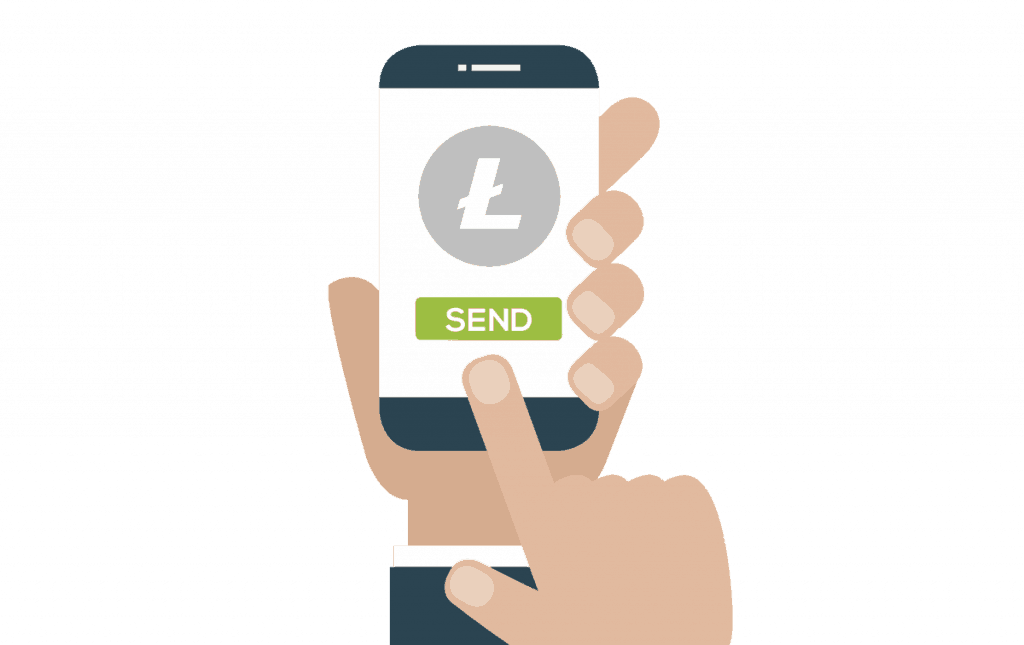WHICH IS BETTER? Ripple vs Litecoin
![]()
A Complete Comparison with All Pros/Cons for Ripple and Litecoin

Ripple (XRP) versus Litecoin (LTC)? Which of the cryptocurrencies is a better investment? How are they different from each other? Which is expected to grow faster? We receive many questions about Litecoin and Ripple, two of the biggest coins. The Litecoin vs Ripple debate is creating serious discussion among cryptocurrency enthusiasts and investors. It’s not easy to understand the difference and choose between them.
Which should you buy? If you’re considering investing in either Ripple or Litecoin, you first want to read this guide. You will learn all the pros and cons of Litecoin and Ripple. The similarities and differences. You will get a better understanding of how the cryptocurrencies work. You will have enough knowledge to make the best investment decision on Ripple vs Litecoin.
In this complete comparison guide, we will answer all your questions. The guide includes all the cryptocurrency features and more such as; The story behind Ripple/Litecoin, advantages and disadvantages about them, and frequently asked questions. You will also find the best cryptocurrency exchange for buying Ripple and Litecoin at the end!
Since we aim to help, you make the right decision with Ripple vs Litecoin. We start with the history of Litecoin, factors that affect its price and the prospects for this popular cryptocurrency.
Ready? Set! Go →
CHAPTER 1
The Story Behind Litecoin (Pros & Cons)
CHAPTER 2
Litecoin as a Short Term Investment
CHAPTER 3
Litecoin as a Long-Term Investment
CHAPTER 4
The Story Behind Ripple
CHAPTER 5
Investing in Ripple (XRP)
CHAPTER 6
Ripple vs Litecoin: The Final Thoughts
WINNER
Buy Cryptocurrency Here
FAQ
Frequently Asked Questions
Top 3 Crypto Exchanges - July 2024
| # | Most PopularExchange | Rating | Services | Deposit / Withdraw | Fees / Spread | Why Open Account? | |||||
|---|---|---|---|---|---|---|---|---|---|---|---|
 |  | 98 | All-in-One | Low$0 / $5 | Low$0 / ~0.75% |
| |||||
| Payment Methods: | Cryptocurrencies: | Payment Methods: | |||||||||
 |  | 80 Read Review | Exchange | Low$0 / $2 | Mid1.49-3.99% + ~0.50% |
| |||||
 |  | 80 | Exchange | Low | Mid |
| |||||
| 4 |  | 78 | Exchange | Mid | Low |
| |||||
| 5 |  | 75 | Exchange | Low | Mid |
| |||||
| 6 |  | 75 | Exchange | Low | Mid |
| |||||
| 7 |  | 70 | Exchange | Low | Mid |
| |||||
| 8 |  | 70 | Exchange | Mid | Low |
| |||||
| 9 |  | 66 Read Review | Exchange | Mid | Low |
| |||||
| 10 |  | 65 | Seller | High$0-25 / 0.10-0.90% | High 3.90-8.99% + 2.00% |
| |||||
| 11 |  | 62 | Exchange | Mid | Mid |
| |||||
| 12 |  | 57 | Exchange | High | High |
| |||||
| 13 |  | 57 | CFD | Low | Mid |
| |||||
| 14 |  | 55 | Exchange | BTCDeposits only crypto | Low |
| |||||
Only Crypto: No Fiat Deposits (USD/EUR) | |||||||||||
Welcome to CryptoRunner! I’m David Andersson, co-founder of this site.
We understand that cryptocurrencies can be confusing and frustrating. That’s why we are here to help you.
Keep reading!

CHAPTER 1
The Story Behind Litecoin (Pros & Cons)

Litecoin was created in 2011 by a Former Google Engineer Charlie Lee, and it came into the market as an improvement to Bitcoin (BTC). Litecoin (LTC) was specifically designed to execute faster transactions and at a lower fee than it’s the pioneer cryptocurrency BTC. Litecoin remains to be among the leading crypto coins globally regarding the market cap.
Coming soon after Bitcoin, Litecoin is one of the earliest coins to get into the business. The superior Send/Receive features of this decentralized digital currency happen to be among the fastest in the market today, and that’s a reason most people prefer using it. In addition to that there are several essential features that we are about to describe that make it among the go-to cryptocurrencies including the following:
- Technical improvements such as SegWit and Lightning Network that have been readily implemented making it a more user-friendly option
- Mining of Litecoin is more affordable than mining Bitcoin
- Litecoin is an open-source peer-to-peer cryptocurrency that offers users more opportunities
- Due to its relatively lower value and the fact that it uses a scrypt and encryption process, LTC is usable for everyday transactions

Advantages of Litecoin
You cannot do a fair Litecoin vs. Ripple comparison without taking account of the following advantages that Litecoin has
- Scrypt Algorithm: GPU’s are used to mine Litecoin efficiently and, as a result, ASIC miners are kept at bay to ensure there is sufficient Hash power to be distributed equitably among all the users.
- SegWit and the Anti-Spam filter: Litecoin pioneered the component of using spam filters to maintain a blockchain size that can be kept limited, thanks to SegWit and ant-spam filters.
- Fast transaction times: We already mentioned here that Litecoin has perhaps the quickest block timing, therefore, making it a preferred cryptocurrency among users.
- Buzzing community: Litecoin has got one of the most progressive communities and core development team that provides ready answers for any burning questions. The high quality of interaction has made it a popular cryptocurrency among users.

Disadvantages of Litecoin
- Success depends on Bitcoin’s troubles: Should Bitcoin improve one day in future and address the troublesome scalability and transaction speeds, then Litecoin could find that it’s skating on fragile ice. The reason is that majority of crypto investors prefer Bitcoin so much so that the term has become synonymous with cryptocurrencies.
- Difference is only a perception: Many experts have argued that Litecoin and Bitcoin is the same thing just that the latter has become renowned. Such becomes a battle of perception until one of them proves otherwise.
In the Litecoin vs. Ripple battle, you want to remember that this is not the year 2017 when Litecoin joined the league of successful coins and surged close to 5000 percent in 12 months. The market has drastically changed since then. This has made it harder to decide which cryptocurrency to invest in. Since we have already given you some background information on Litecoin, it is the right time to ask whether Litecoin is a good or bad investment.
CHAPTER 2
Litecoin as a Short Term Investment

When we describe a short-term investment, we mean investing for 1-12 months even though there are experienced traders who spend for a few hours, days or weeks. A good example is when investors are expecting a specific event to affect coin prices in a particular way.
Advantages
The benefits of investing Litecoin on a short term include:
- High trading volume: After trading from 2011 Litecoin is an established coin and therefore favorite among investors; this means you won’t have a problem finding buyers when you decide to sell.
- It’s listed on Coinbase: Coinbase is a leading cryptocurrency exchange, even though it has just a few coins listed. This means you can quickly sell or buy Litecoin or deposit your coins to get fiat money.
Disadvantages
- Volatility: volatility is a significant issue in the entire crypto market, meaning short term investments in Litecoin are a little risky.
CHAPTER 3
Litecoin as a Long-Term Investment

Making a long-term investment means you are willing to wait and see your coin’s value rise slowly; this means that market volatility will not be a real issue for you. Long-term investment is more suitable for less-experienced traders.
Advantages
- Trusted leadership: Litecoin creator Charlie Lee works for his project full time and is backed by some experienced experts who are helping the company to grow.
- Established: With more than seven years on the market Litecoin is an established cryptocurrency making it a less risky choice.
Disadvantages
- Blockchain scalability: Just like other blockchains, Litecoin now processes 56 transactions per second as it slows down due to increased traffic. The company must work on it to make it more useful in the future.
At this point in our Ripple vs. Bitcoin comparison we interrogate the world’s most practical blockchain-based financial network, Ripple.
CHAPTER 4
The Story Behind Ripple

The world is slowly but gradually shifting towards a digital, cryptographic-protected style of executing transactions and the conventional banking systems are slowly giving way. Only those that are willing to adjust and include efficient, safer and faster digital payment systems will manage to maintain their businesses and survive.
The exciting, feature-rich Ripple network
Ripple technology is more widely known for the digital payment protocol it operates than its being a cryptocurrency. It was co-founded by Jed McCaleb and Chris Larsen in 2012 and is currently enjoying worldwide recognition via its XRP digital coin. Ripple operates on a decentralized platform that enables different kinds of money transfer since it’s a peer-to-peer open source network; it works seamlessly with various fiat or cryptocurrencies.
The million dollar question that makes our Ripple vs. Litecoin comparison meaningful at this stage is whether or not Ripple is good. The only way we can come up with a correct answer is by comparing the advantages and disadvantages of Ripple.

Advantages of Ripple
So what’s good about Ripple? Well, quite a bunch, as you can see below:
- Household name: the best thing about Ripple is that it’s become a tool of the trade for real banks and financial institutions that are real household names the world over.
- Fast transaction times: Apparently, transaction speeds are much lower than the rest of the significant cryptocurrencies including Bitcoin, Litecoin and Ethereum. The prove Ripple (XRP) transaction speeds are 4-seconds compared to Ether’s 2+ minutes or Bitcoin’s pre-SegWit 1 hour +.
- Transaction fees: The payable fees are so low, coming to 0.00001XRP, which is lower than what’s payable for Ether, Bitcoin or Litecoin.w.
- Reputation: XRP has a popular cross-border payment format that rivals the large fiat systems such as SWIFT, MoneyGram, and Western Union.

Disadvantages of Ripple
- Holding over 50% XRP coin supply: While cryptocurrencies in their very nature are meant to be decentralized, Ripple has gone against the grain and owns over 50 percent of the entire XRP coin supply. Experts believe that this can have a sort of adverse effect on Ripple’s price predictability.
- Central authority: Ripple’s consensus ledger approach is also dissimilar from the usual cryptocurrency standards since it requires “validated” participants to give transaction verification. It’s different on the Bitcoin network where anyone can set up a node and verify a transaction.
- No long-term plan: Ripple’s primary goal is to promote its money transfer technology and the XRP coin appears to be a secondary part of their overall strategy. This, therefore, shows Ripple don’t play according to the rules of traditional cryptos.
The most significant advantage that keeps it going is its fast and cheap transactions besides the ability to use the XRP coin through trusted banks and financial institutions. That has given Ripple an international appeal and a sense of credibility. Moreover, just like we did with Litecoin, our Litecoin vs. Ripple comparison isn’t complete until we consider Ripple as an investment.
CHAPTER 5
Investing in Ripple (XRP)

Perhaps we begin by asking ourselves why you should consider investing in Ripple at all. Well, having gone through the pros and cons, the difference between the two is in black and white, the positives far outweigh the negatives, and by a good margin.
RippleNet, a network created by Ripple to interconnect payment providers and banks have become a highly lucrative venture that is drawing users from all over the world. Ripple is currently a highly valued token in the crypto market and has high scalability that can be modified to relate to the market trends. Ripple has made huge partnerships and collaborations with many banks, and that alone has bolstered Ripple’s valuable asset.
Why Invest in Ripple?
- Price explosion: Starting from a low price, the coin’s sudden price explosion came in line with all other cryptocurrencies.
- Fully functional: Even after the cryptocurrency price crash Ripple remains alive and useful, and what’s more, its price has continued to climb slowly, and experts believe this is the right time to invest in Ripple.
- Cheap and available: Ripple is one of the coins that are still affordable, and, as a result, investing in XRP will not burn a hole in your wallet. The coins can be bought from many cryptocurrency exchanges, and they have an excellent daily turnover.
CHAPTER 6
Ripple vs Litecoin: The Final Thoughts

As we conclude our Ripple vs. Litecoin comparison, it is safe to state the main difference between the two cryptocurrencies before we make a final decision.
- Ripple has only one function and is regularly updated to ensure simple, fast and secure cross-border transactions while Litecoin had many features and was created to compete with Bitcoin.
- Ripple is the favorite of large banks and financial institutions for affordable cross-border transactions while ordinary people use Litecoin for daily transactions.
Both Litecoin and Ripple have some similarities, they are a perfect competition for each other. Ripple may be slightly ahead of Litecoin at the moment, but most people seem to prefer Litecoin over Ripple.
By concentrating on only on function, Ripple seems to have a limited potential for growth, but on the same grain, we can say that Litecoin appears to have a more significant potential for growth.
Since most people are just beginning to learn about cryptocurrencies and the benefits of Ripple vs. Litecoin, it may be the best time for any digital currency to promote their products to get more people on board.
Ripple remains an interesting cryptocurrency to watch despite its unique traits and features, creating a more significant challenge for crypto enthusiasts and potential investors. Add to that the widespread opinion that Ripple’s application in real-world usage and you has a winning coin. If you are therefore thinking short-term, you want to believe XRP, but for a long-term investor, Litecoin may be the way to go with Ripple vs. Litecoin.
Which Should You Buy?
There is no straight answer to that question. You need to make that decision yourself. We hope this was enough information to compare these cryptocurrencies. If nothing else, you can buy both Ripple and Litecoin to build a diversified long-term portfolio.
Which one will you buy? Let us know in the comments! Below you will find the best exchange for buying both Ripple and Litecoin →
 | Buy Ripple / Litecoin Now!
|
Risk Disclaimer: Don’t invest unless you’re prepared to lose all the money you invest. This is a high-risk investment and you should not expect to be protected if something goes wrong.
Frequently Asked Questions
Is your question not answered here? Let us know!
Ripple isn’t a blockchain. The name represents a company, a cryptocurrency, and a digital-payment processing protocol.
Unlike other cryptocurrencies, Ripple is not mined. The transactions are powered via a centralized blockchain.
It takes at least 2.5 minutes to confirm a Litecoin block.
You cannot mine cryptos using your laptop because you cannot control the voltage on your machine’s CPU and GPU. The parts of your laptop are not designed for this 24/7 operations.
Do you want to buy Ripple instantly with your debit/credit card? In that case, use the cryptocurrency exchange we recommend above. It’s the fastest and easiest way to buy Ripple →
Do you want to buy Litecoin instantly with your debit/credit card? In that case, use the cryptocurrency exchange we recommend above. It’s the fastest and easiest way to buy Litecoin →

















FORUM
Join The Discussion